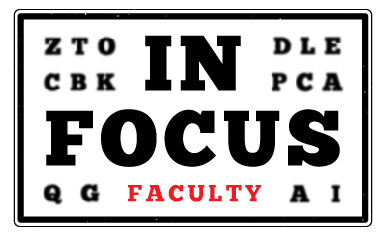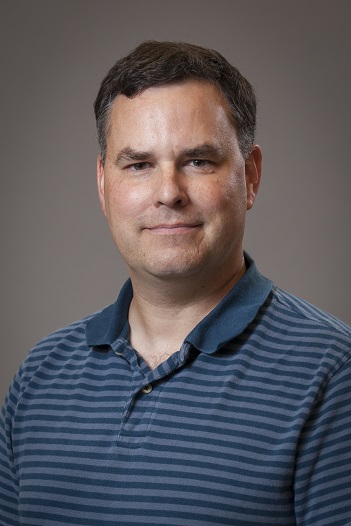
InFocus: Jeremy Mason and CHEM 1305
Jeremy Mason graduated from Texas Tech University in 2005 with his Master of Science. He has worked in the lab, as an advisor, and as an instructor. He is currently the instructor of Chemistry 1305 here at TTU, a chemistry course that is required for students within the Pre-Nursing designation. We interviewed him to see what we could learn about this challenging class, including why it can be so difficult for students and how they can best prepare for it.

PPHC: Hi, Jeremy.
JM: Hey, how're you doing?
PPHC: I'm doing just fine. Thanks for meeting with me.
JM: Yeah, no problem.
PPHC: I just had a few questions for you about your class, CHEM 1305. As you probably know, that is a big one for our Pre-Nursing students.
JM: Oh yeah.
PPHC: Chemistry 1305 – how would you describe that course? The content, the scope of it, the difficulty…
JM: We focus on the general information in chemistry that students need to know to understand a little bit about the world around them, how atoms make up everything – you can figure out a lot of stuff by understanding how they work. But it is definitely more of a conceptual class, so students who are really good at math find this to be a little harder. And chemistry in high school is certainly more math-based, so they're not necessarily ready for the information the way it's presented. They're just like, “I'm gonna have to memorize some equations and whatnot,” but 1305 is more of a conceptual class. We want them to understand why things work in chemistry, and math is used to support why that works, but it is not the main focus (as they got used to in high school). So it's a bit of a transition for many of them. If they've never had chemistry at all, it tends to be hard but not unexpected.
PPHC: Interesting. I actually didn't know that myself, that it focused less on the math and more on the concepts and theory of chemistry. How do you think your class prepares students for a future in pre-health?
JM: Well, as long as pre-health does not involve the ones requiring harder chemistry – well, I guess more chemistry, but not necessarily harder, because everybody thinks chemistry is hard [laughs] – but for the ones that can get away with one, maybe two semesters of chemistry, it does a good job of giving them the background. My colleague who will no longer be teaching it because she's moving universities, but there's been two of us that've taught it awhile, and we both spent time meeting with Texas Tech nursing faculty, making sure that what we wanted to deliver in the class fit with what they need from their students and they felt like it was a good fit with us not focusing on the math, because nurses aren't going to do the math. Even doctors and pharmacists don't do the chemistry part of the math. They'll do some math, but not as much related to chemistry. So understanding the concepts and why things work they way they work is helpful, and really moreso being able to take information you know about how something works and apply it to a situation to get an answer that maybe isn't known, is really what nursing school is looking for.
PPHC: Great. I really appreciate that answer. That's going to be pretty helpful to our students, I think. At least to help them understand why this is important for them.
JM: Yeah, it truly is not learning the chemistry [laughs]. It's learning how to apply what you learn.
PPHC: What kind of recommendations or tips would you give students entering your class to make them more successful?
JM: It's certainly not a math-based course, but they should brush up on basic algebra: how to rearrange an equation. Because even if they're not plugging in numbers, knowing where different variables fit in an equation and then arranging it the way you want can help you answer questions from a conceptual point. Like if I change X, what does that do to Y, depending on where they are in the equation. That can help. Reading the book before lectures, which no one ever does.
PPHC: [laughs]
JM: But it's helpful. I didn't like to do it as a student, either, so I know. But I know it's helpful, too. If they find themselves struggling, just having an idea of what's coming up does make lectures more doable.
PPHC: How would you say that your class, CHEM 1305, differs from CHEM 1301 and CHEM 1307?
JM: Alright, so mine is not useful as a replacement for either. A student that needs 1307 is going to need more of the math-based side of chemistry, and 1301 prepares them for that. I've had students make A's in 1305, and I've waived the prereq of 1301 for them to go on to 1307, and they've done okay. That's because 1305 does, in my opinion, a really good job on the concepts. And so they get that, and then they just have to pick up the math, but it's not as good of a preparation. (1:48 left)
PPHC: Okay, so the stepping stones, if you went from 1305 to 1307, it wouldn't necessarily be as helpful as 1301 to 1307.
JM: Right. And we really only allow that with an A in 1305, whereas a C in 1301 tends to be allowable. If you get a C in 1301, you're not likely to do well in 1307, but it gives you the chance.
PPHC: I think that is all I needed from you, Jeremy. I really appreciate your time. I think this is going to be extremely helpful to a lot of our Pre-Nursing students.
JM: Excellent.
Pre-Professional Health Careers
-
Address
147 Drane Hall, Box 41038, Texas Tech University, Lubbock, TX 79409-1038 -
Phone
806.742.2189 -
Email
pphc@ttu.edu
